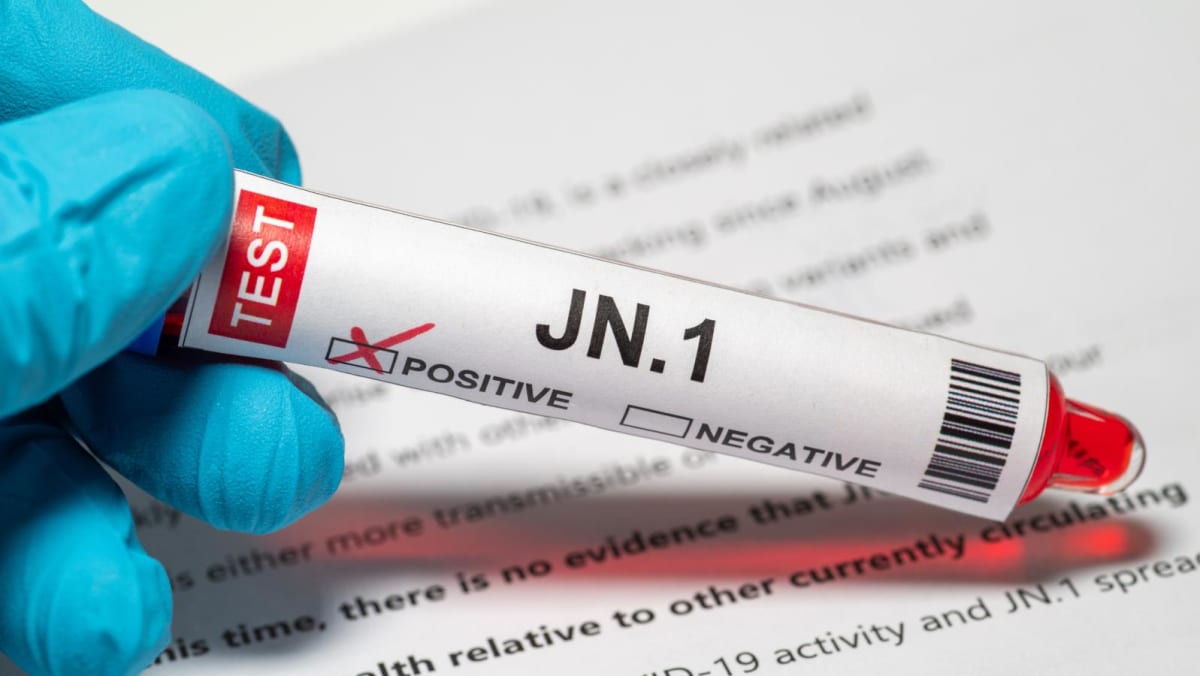
WHY IS JN.1 SO EASILY SPREAD?
Dr Tambyah said that Singapore’s COVID-19 case spike is most likely fuelled by the evolution of the coronavirus.
“This is known to happen with influenza and common cold (rhinovirus) viruses,” he added.
“The reality is that these viruses are well adapted to avoiding the human immune system … Most viruses that have adapted well to humans are constantly evolving to avoid the immune response generated by infection or vaccination.”
Inertia in keeping up to date with COVID-19 vaccinations and the growing time since a previous infection have also resulted in the increasing number of cases, the experts said.
Dr Leong said: “In both these cases, the longer it has been, the more likely they will fall sick (because of) the relative lack of immunity.
“Even though there is hybrid immunity, it is not sufficient for this strain because of the multiple mutations since.”
Hybrid immunity is a combination of the effects of past infections and vaccination, which provides stronger immunity against subsequent infections.
Dr Tambyah said that it is not clear if the current COVID-19 vaccines are effective against JN.1, but WHO has said that protection from vaccines that fight the Omicron XBB variant “are likely to be effective”.
WHO said in its Tuesday statement that its technical advisory groups are monitoring this.
“Certainly if the vaccine uptake was much better – like in earlier vaccination rounds – we would see much fewer cases and less hospital admissions,” Dr Leong said.
MOH considers the minimum protection for persons five years and older as three doses of Pfizer-BioNTech (Comirnaty), Moderna-Spikevax or Novavax (Nuvaxovid) vaccines, or four doses of Sinovac.
On its website, the ministry recommends an added dose of the updated vaccine a year after the last dose for people aged 60 years old and above, those who are medically vulnerable and residents of aged care facilities.
WHAT OTHER FACTORS ARE BEHIND THE RISE IN COVID-19 CASES?
Experts told TODAY that besides the new variant, winter conditions in the northern hemisphere and more people choosing not to wear masks have fuelled the increase in COVID-19 cases.
Dr Leong said that more cases are recorded also because people are getting more than one viral infection at once.
“People are more symptomatic because they may be positive for COVID-19, but have another viral infection in the background that is not diagnosed,” he explained.
With a more severe illness, people are more likely to see a doctor or be admitted to hospital. This would cause the recorded number of cases to rise.
Increased travel is another factor, Dr Tambyah said, since travel helps mix and spread different virus strains that have developed in different locations.
On this point, Dr Leong said that this is like any epidemic, where cities and countries better connected with the rest of the world will be the earliest to be hit with an upswing of COVID-19 cases.
This article was originally published in TODAY.
